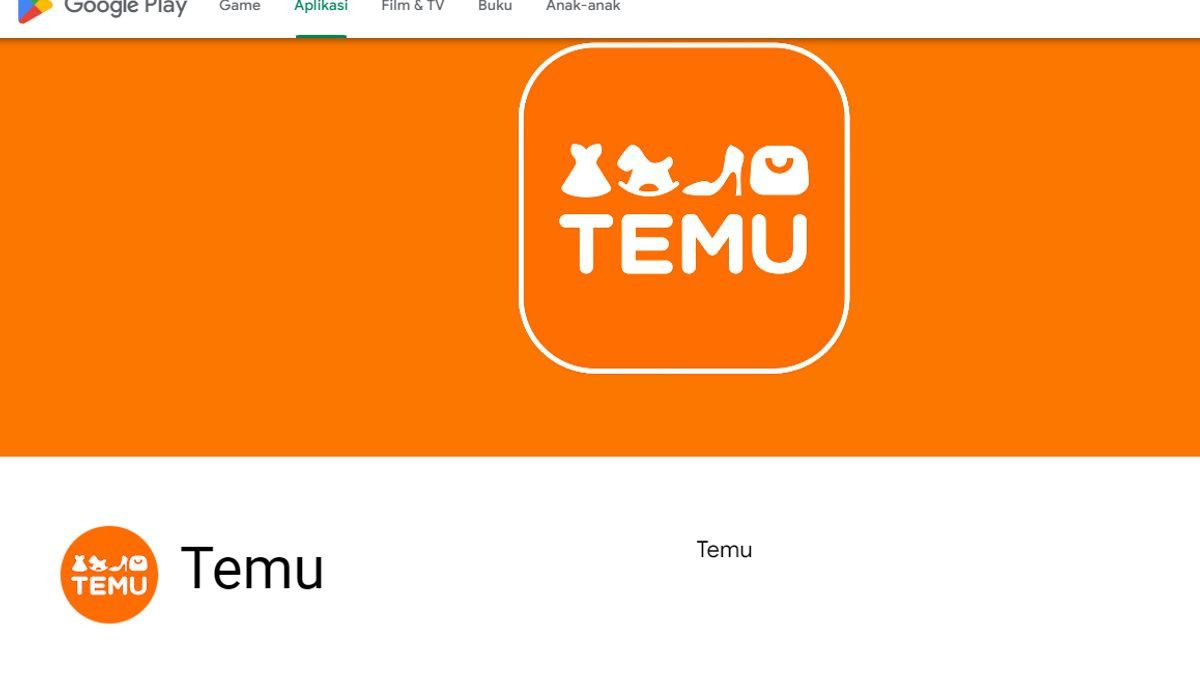YOGYAKARTA - A number of Indonesian officials have explicitly rejected the presence of an e-commerce platform from China, Temu, in Indonesia. According to them, the existence of Temu risks the continuity of micro, small and medium enterprises (MSMEs). Why do you think the Temu application could threaten MSMEs?
One of them is the Minister of Communication and Information, Budi Arie, who firmly rejects the entry of the Temu application because they think they can interfere with the MSME ecosystem.
"We will not give the opportunity. People lose, right, we want to become a digital space to make people productive and more profitable, if it makes people lose for what," explained Budi Arie at the Kominfo Office, Jakarta, Tuesday, October 1.
Minister of SMEs Teten Masduki is also worried that MSMEs will be threatened if Temu enters Indonesia. Teten even has concerns that the impact of Temu will be more risky than Tiktok Shop.
This is because the Chinese platform can facilitate cross-border trading or from abroad. The findings may still be able to pass all Chinese products to Indonesia.
"This is what I'm worried about, there is one more digital application, a cross border that I think will enter us and this is more powerful than Tiktok (shop)," said Teten in a Hearing Meeting (RDP) with Commission VI of the Indonesian House of Representatives, last June.
Temu is an e-commerce application that directly connects sellers and producers.
In other words, no more goods are obtained through resellers, affiliators, and third parties so that they are dangerous for MSMEs. The price of goods offered in this application can also be said to be too cheap.
Their existence will also eliminate resellers and affiliators or third parties. Metu also allows goods from Chinese factories to enter Indonesia freely.
Why can the Temu application threaten MSMEs? (play.google.com)
President Director of Smesco Indonesia, Wientor Rah Mada also expressed a negative opinion about Temu, he explained that if Temu operates in Indonesia, MSMEs will be threatened. This is because this application offers a very cheap price.
"We indicated that in some conditions they gave a 0 percent price. In the US they had given a 0 percent price. So buyers only paid shipping costs," explained Wientor in a media discussion at the Ministry of Cooperatives and SMEs office, Tuesday, August 6.
"Temuan ini aplikasi jahat dari China. Yang kalau dibiarkan masuk UMKM kita pasti mati," tambahnya.
The operational permits for Temu in Indonesia are currently being processed, and are registered through the Directorate General of Intellectual Property (DKJI) of the Ministry of Law and Human Rights (Kemenkumham). However, the application was rejected because someone already used its business brand in Indonesia.
By filing an appeal to the Ministry of Law and Human Rights, Temu is still trying to enter Indonesia. However, the business model that connects factories with consumers directly is not in accordance with Indonesia's trade policy.
SEE ALSO:
Reporting from the official website, Temu is an e-commerce platform that allows customers to browse and purchase products from various categories, including electronics, household appliances, clothing, and accessories that connect directly to 80 factories in China.
Temu sendiri didukung oleh perusahaan asal China PDD Holdings yang memiliki kantor pusat di Boston, Amerika Serikat.
The platform, which was first launched in 2022, achieved popularity quickly in the US. Even Temu has become one of the most downloaded applications on the App Store and Google Play Store with the number of downloads reaching 165 million downloads.
With so many downloads, Temu also has so many active users. The number of active users Meeting reaches 167 million people every month, even in the US, there are at least 50 million users.
The popularity of Temu in the US is also supported by advertising, and has spent billions of dollars advertising. The Wall Street Journal says the company is the fifth largest advertiser in the US in the fourth quarter of 2023. JP Morgan analysts expect the company to spend $3 billion for marketing in 2024.
The English, Chinese, Japanese, Arabic, and French versions are automatically generated by the AI. So there may still be inaccuracies in translating, please always see Indonesian as our main language. (system supported by DigitalSiber.id)


















